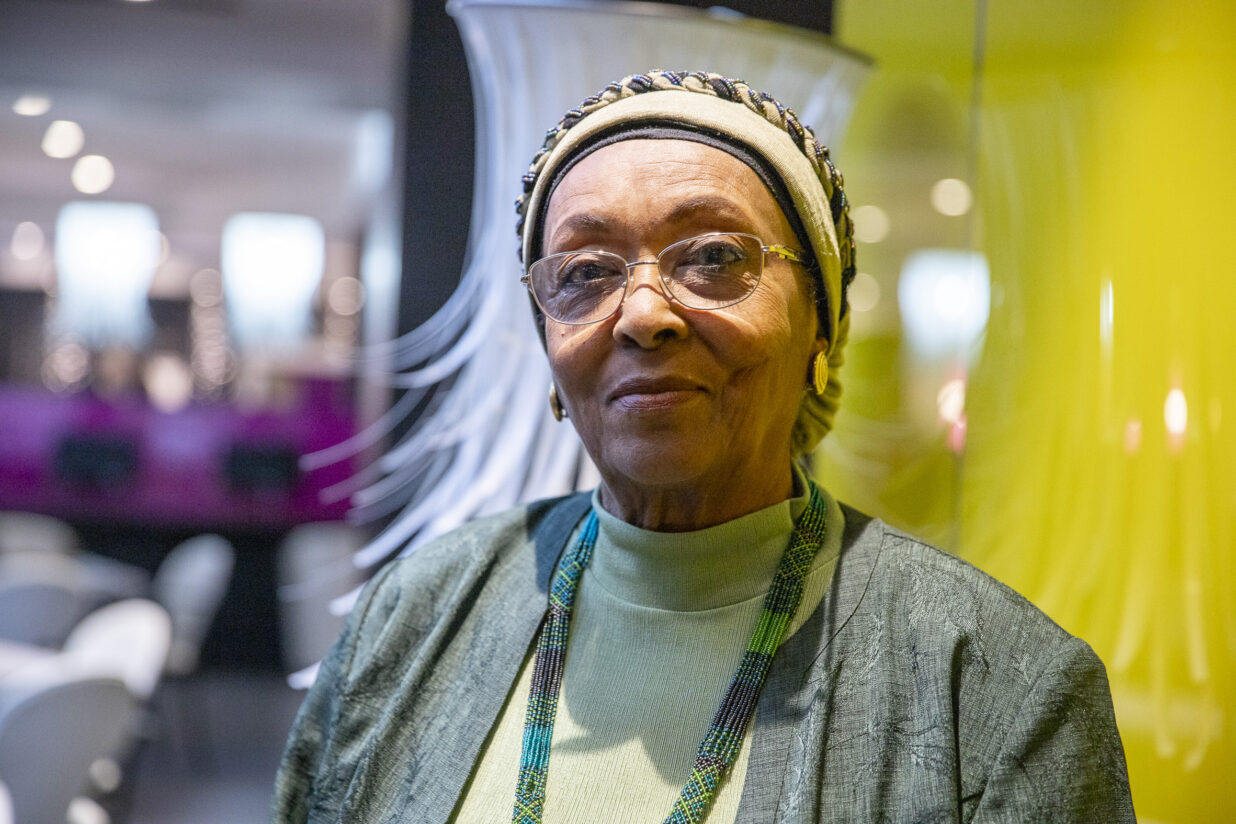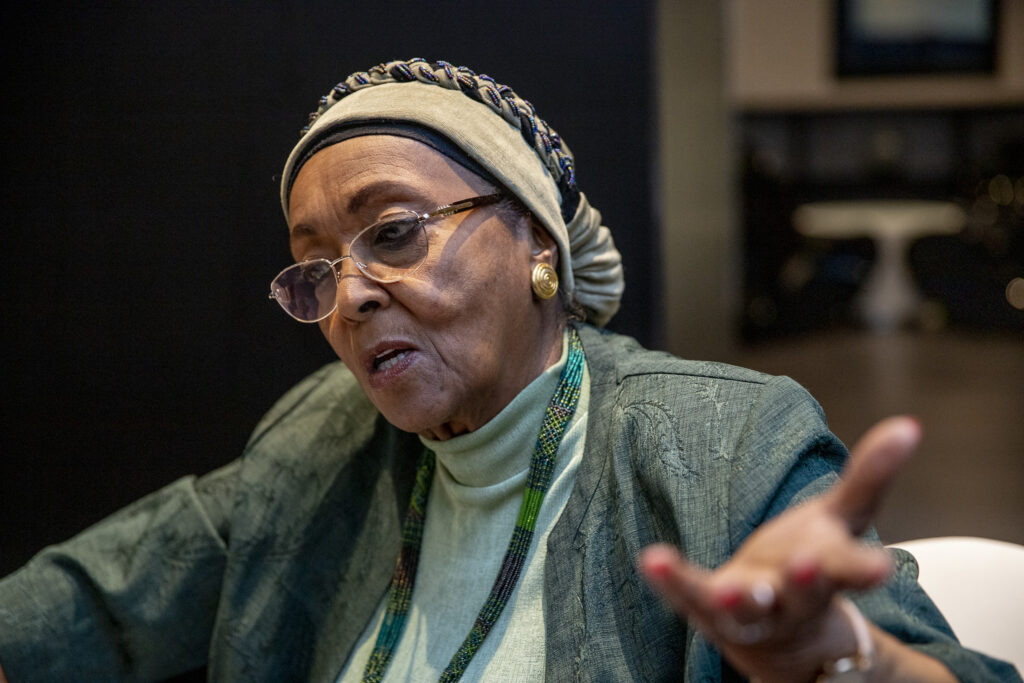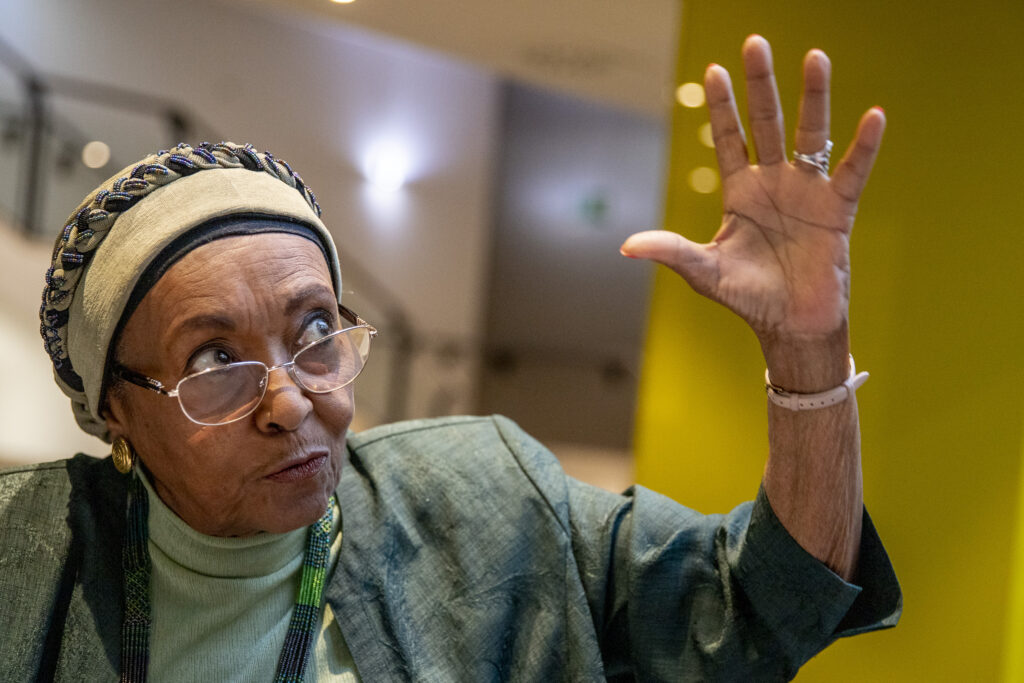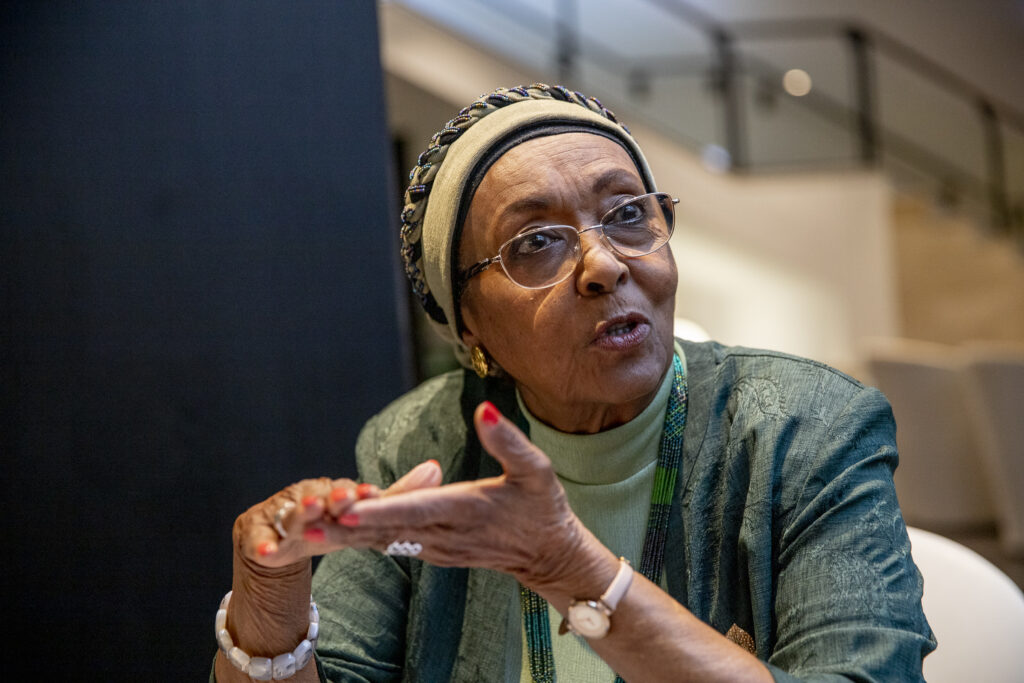24.04.2023 - 03:32
|
Actualització: 24.04.2023 - 17:41
Edna Adan Ismail is eighty-five years old. When she was born, her city, Hargeisa, was part of the British Protectorate of Somaliland. After independence, she served as Minister of Family and then Foreign Affairs. She also worked for the World Health Organization. When she retired from the organization at sixty, she returned to her country and set to work. Her eyes light up when she talks about the university and hospital that bear her name in Hargeisa, to which she has dedicated great efforts. Pointing to a small window on the ground floor in a photograph, she says, ‘See that? I live there.’
Edna Adan Ismail is a symbol for the people of Somaliland and a few days ago she received a commission from her president to try to speak with the authorities of Somalia, who do not recognize its independence and who have been attacking her country constantly for years. She is also the president of the UNPO, the organization of stateless nations of the world, which Catalonia is part of through the Catalan National Assembly. She is in Barcelona to participate in a public event and chair a meeting of the UNPO General Assembly.
-I saw a photo of you talking to King Charles of England, what did you tell him?
-It was a very short conversation, a few minutes. I told him that his mother had decorated my father with the Order of the British Empire for his actions during World War II. And, of course, I explained the situation that we are living in Somaliland.
-You were actually born British.
-I was born in Hargeisa when it was part of the British Protectorate of Somaliland. Note the detail: protectorate, not colony.
-In June 1960, Somaliland declared independence, but a few days later, it fell under the influence of Somalia, and today, the international community considers Somaliland to be a part of Somalia. Do you understand this?
-No. And you?
-I don’t understand why the world is so insistent on diplomatically recognizing Somalia, which is a real black hole, and not recognizing Somaliland, which is a de facto, democratic state. The most stable in the region.
-We are a country. A country. Some people say that we want to change the borders of Africa, but we only want to return to the original. Somaliland was independent before Somalia. If someone has changed the borders, it’s them.
-Then why do UN member states refuse to recognize Somaliland?-
You tell us. We’ve done everything that was required. We’ve rebuilt a country devastated by war. We’ve created functioning institutions. There are elections. People vote. We’re responsible for controlling our territory and our country’s maritime waters, which are among the most important in the world. You’re the ones who need to explain what you’re doing.
-That’s not in my hands.-
The West is sending a terrible message. We’re a democracy and they won’t recognize us, but they recognize Somalia, a country that has never held elections. What cynicism!
-What do you mean?-
I’m talking about the paradox of democracy. The West says it wants democratic regimes everywhere, but we’re building a democracy in the midst of decades of war and aggression against our country, and the West comes and says no, that we have to deal with the aggressive neighbor, who not only is not a democracy but is also considered, in all rankings, the worst state in the world. What explanation is there for that? What are you doing?
-The situation in the Horn of Africa is very delicate, full of great difficulties. Do you feel abandoned?
-We’re used to being left alone, you’ve done it before, and we’ve recovered on our own. But now the situation is much more serious, and the blindness is immense. Look at a map and imagine what it would mean if our coast ended up in the hands of al-Shabaab, Iran. World trade would collapse in twenty-four hours! That incident with the ship that got stuck at the entrance to the Suez Canal would be a joke compared to what it would mean to let these people effectively control the Gulf of Aden and access to the Red Sea and the Suez Canal.
-Right now, you have an armed conflict on the border with Puntland and a difficult situation in Las Anod.
-We’re defending our territory as we’ve always done and will always do. The local clans and tribes are talking in Las Anod to try to calm the conflict, but it’s al-Shabaab, al-Qaeda, and the chaos of Somalia that are knocking on our door, trying to destabilize our country. Everyone should be interested in stopping them. In fact, everyone or almost everyone would benefit from us stopping them. Otherwise, the world will suffer greatly.”
—Why is Somalia such an immense chaos, a black hole of these dimensions?
—Because they have turned war into a business. They live off of it and there is always someone who grows and takes over most of the business.
—Do you think you will ever be able to reach an understanding with them?
—We have already talked with Somalia seven times. We will try again to see if we can make progress. But we will not give up an inch of our territory.
—What would be the ideal situation for you?
—We would like Somalia to be a reliable and stable country, of course. We are neighbors. In fact, Somalis are divided into five areas, in Somaliland, Djibouti, Somalia, the Somali areas of Ethiopia, and those of Kenya. We would like to have good relations with everyone, but each one at home. Somalia thought it could dominate us, and that’s why we separated.
—The elections in Somaliland have been postponed for many months.
—So what?
—Isn’t that a bad sign?
—Come on! What do you think the people in my country think about democracy? Do you know what they ask me? They ask me what good is so much democracy if in the end the world recognizes Somalia, which has never had it! Western cynicism does a lot of harm. You use democracy in the third world for what you want.
—But democracy exists for itself. It’s not just a matter of imposition from the first world…
—Of course. But democracy is not just elections every four years. Democracy needs peace, stability, education and that’s what we’ve built in Somaliland. And even though we’ve done it, you deny us recognition and go do business with Somalia and give them the aid you deny us.
—How do you live without external aid?
—We have also gotten used to it.
—I’m sorry to insist, but in any case, all of this does not justify not holding elections.
—Look, our enemies are getting bigger and more violent every day. We have not only Al-Shabaab at our doorstep, but behind them, Iran. In Djibouti, there is the largest foreign military base of China and Chinese ships exhaust our waters. People wonder how we can stop all of this, what we can do to ensure our existence. We have done a good job for decades, we have built a country that is a model for the region, we have every right to exist because we proclaimed independence after the British mandate and in 1991 we returned to the origin in view that Somalia did not treat us with dignity and only wanted to take advantage of us. You Westerners always talk as if voting were a magical process. I will say it again: you underestimate our democracy, but embrace the disaster of Somalia. You’ll see.
—I don’t know if I should ask if you still have hope…
—Would you have any, maybe?
—Despite all of this that you explain, these recent months there have been positive signs. The opening of the road between Ethiopia and the port of Berbera, in Somaliland, in fact, has led to the appointment of an ambassador to your government. The relationship between Taiwan and Somaliland has gained a lot of strength and Western countries seem to be beginning to understand that Somaliland is the best ally they could have in the area…
—Of course, we are always making progress, even if they are small steps. For Ethiopia, the road is a fundamental economic outlet for its production to reach the sea. And the relationship with Taiwan is very positive and makes us dream. We think that one day we could be the Taiwan of Africa. It is admirable what they have done in a situation that is similar to ours, due to the lack of official recognition.
—You are in Catalonia these days to preside over the General Assembly of the UNPO. Seven founding countries of the UNPO, such as Estonia, Armenia, Kosovo and East Timor, are now members of the UN. Could it be said in some way, using a football metaphor, that the UNPO is the second division of the UN?
—No. I wouldn’t say that. The UNPO is an organization where representatives of forty-four peoples from around the world come together and can share projects, ideas, concerns, organize and move forward.
—How important is it for you to be the president of the UNPO General Assembly?
—I didn’t campaign for it, but I feel very honored and I learn a lot from my colleagues. If you think about it, we are a group of small Davids facing big Goliaths. Good work…





